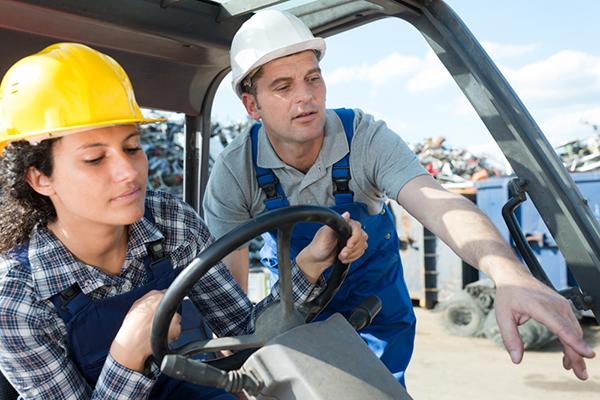Take care of seasonal warehouse and factory employees
The summer influx of seasonal workers brings our industries a great opportunity. Let’s make the most of it by handling those recruits with care.
Welcome them to the materials handling and logistics world
Whether they’re students, trainees or other seasonally employed staff, it’s great to have them. These young people have much to offer you – both now and in the future. First, they’ll help you to do the work while your permanent employees are taking vacations. Then, hopefully, they’ll enjoy the experience and some will come back to pursue careers in your company. As new employees, they should be welcomed, treated well, and encouraged to stay. The future of your business depends on attracting and keeping fresh talent.
Show your summer employees that you care for their welfare:
- Kit them out with the right workwear and PPE (personal protective equipment)
- Make them feel they are valued members of your team
- Teach them your safety practices and supervise them carefully
- Encourage their personal development with training courses and a variety of jobs
Maintain a healthy and pleasant working environment for all staff. In summer, hot conditions can make workers uncomfortable and tired. This may lead to mistakes and accidents, through loss of concentration. See our hot summer tips for keeping your workplace cool.
Invest in forklift operator training
Accident rates often rise when large numbers of seasonal staff are taken on for the summer. Inexperience, and lack of familiarity with the job, their co-workers and your working practices, can increase risks. Extra safety training is essential for all.
If they’re going to operate lift trucks, you must ensure they’re properly trained. If they already have training certificates, check they’re valid. Even then, it’s a good idea to give refresher training specific to your operation. If they’re new to operating forklifts, you must arrange suitable training.
Remember the golden rule: never allow anyone to operate a lift truck unless they’ve completed and passed the necessary training course.
Rules on forklift operator training vary between countries. Certificates issued in another country are not necessarily accepted in yours. However, an experienced operator shouldn’t take long to pass your country’s relevant courses.
A key principle in all countries is that training should be appropriate to the type of lift truck and its application. For instance, separate training would be needed for:
- Moving from one warehouse truck type to another
- Moving from a reach truck to a counterbalance forklift
- Moving from a small counterbalance forklift to a much larger one
- Moving to a forklift with specialised attachments
See our article on protecting your business for further information on forklift operator training.
Work safely as a warehouse or factory team
With so many new people in your warehouse or production plant, it’s important for everyone to give special attention to safety. A rapidly changing workforce might cause problems even for your most experienced forklift drivers. You should ask your core employees to help and encourage the new ones in any way they can. In particular, they should play their part in nurturing a culture of safety.
The skill and safety awareness of your lift truck operators is vital in avoiding accidents. At the same time, pedestrian workers need to be taught how to work safely around lift trucks. After all, pedestrians are much more likely to be injured or killed in the workplace than drivers.
In conclusion, these guidelines are aimed at:
- Minimising the risk and cost of damage to people, equipment and goods
- Building a team that works together productively
- Encouraging young people to join your company and stay with it
For further information:
Your local Cat® lift truck dealer is a good source of advice on training in your area. Safety and user-friendly operation are characteristics of the Cat lift truck product range.


